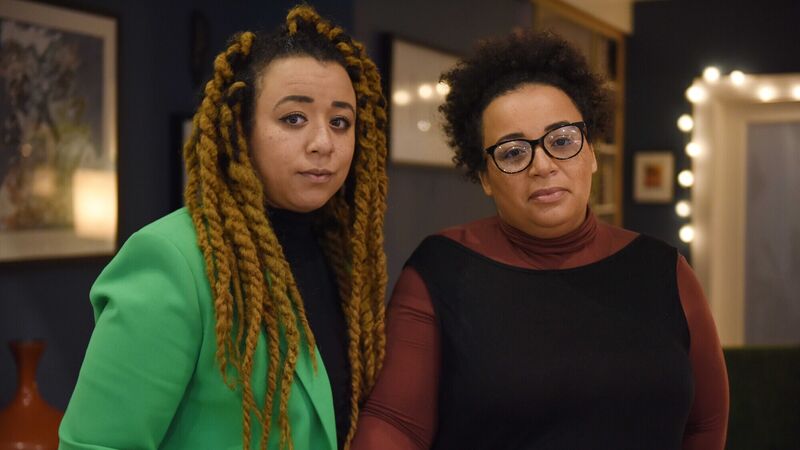How the State's Justice system re-traumatised the Odumosu sisters

Grace and Siobhan Odumosu who were sexually assaulted by their uncle Patrick Caffrey. Caffrey was sentenced at the Dublin Central Criminal Court to four years in prison with one suspended. Photograph: Moya Nolan
On Christmas Day 2016, the Odumosu family went over to their relations the Caffreys in Grove Road, Harold’s Cross in Dublin. The families had shared the festive season and so much else for decades. Siobhán and Grace Odumosu were there, adults now and Siobhán had a daughter. Their other sister Fiona was over in Chicago, where Grace was also living, but Grace had made it home for the holiday. Their mother and Patrick Caffrey’s wife were sisters in the tight-knit, extended family.
At the Caffreys’ house Grace couldn’t help noticing even the most casual, innocuous interaction between her niece and Caffrey. “I just kept seeing her and thinking that it could happen to her, that he could be doing it to her. I didn’t want her to experience life as I had so I made a disclosure to my sister-in-law.”












